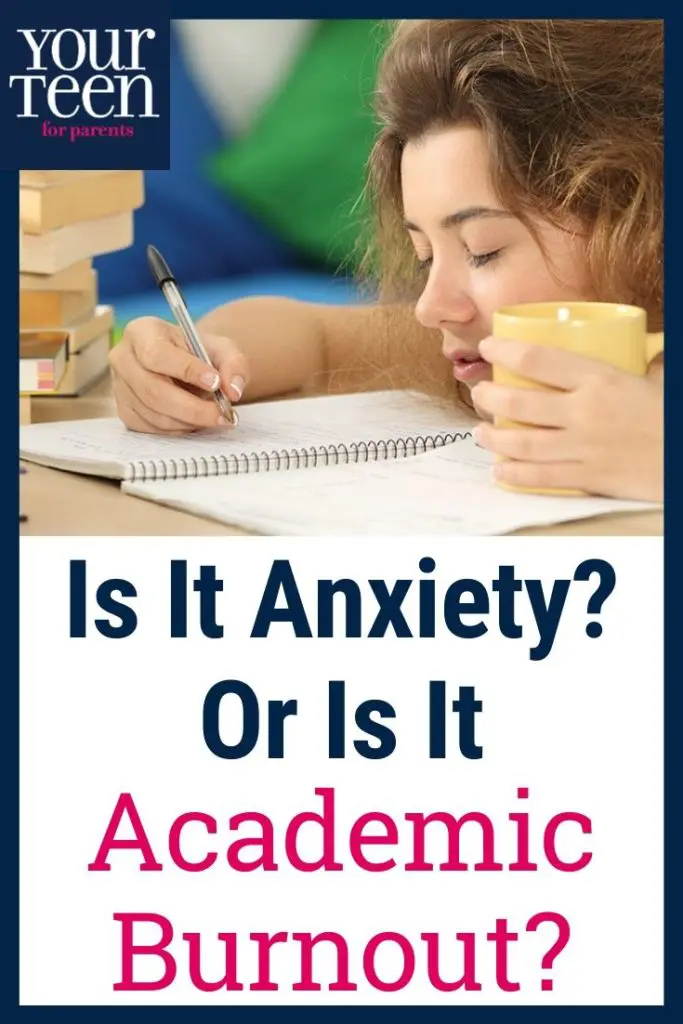A few months into my son’s first year of middle school, he began having trouble sleeping. He seemed stressed and depleted, and he frequently started requesting days off from school. I wasn’t sure why. He seemed to have adjusted easily to middle school. His grades were great. He was making friends. What was the problem?

Soon, it became clear that although he was doing well academically, the pressure to perform—and the accumulation of months of working and studying harder than he ever had—had gotten to him. It turns out my son was experiencing academic burnout.
Difference Between Anxiety and Burnout
Academic burnout is defined as student exhaustion due to studying, homework, project completion, and all the demands that accompany these tasks. Student burnout usually creeps up gradually, making the signs easy to miss.
| [adrotate banner=”202″] |
Signs of Academic Burnout
The symptoms of student burnout may be deceiving at first, says Gregg Moses, school counselor at Hawken Middle School in Ohio. Sometimes student exhaustion looks like anxiety; it may involve a kid who doesn’t want to go to school, complaining of physical ailments like headaches and unshakable fatigue. “You might see an increase in irritability, drop off in social interaction, issues with appetite,” says Moses.
But if you dig deeper, you may find your child is burnt out from the onslaught of schoolwork and academic pressure. Trust your instincts if you think something is awry. “Parents can usually tell when there is a significant change in mood beyond your average teenage moodiness,” Moses suggests.
An important point to note about academic burnout, says child psychologist Stephanie Mihalas, is that sometimes the signs of student exhaustion look like a child who is faltering academically. Parents often assume the solution is to push harder. “But this actually leads to more academic burnout and malaise,” she warns.
What Can Parents Do?
The first step in addressing student burnout is to give your child space to talk. You’ll want to figure out where the burnout is stemming from. “Is it the schoolwork itself? Or is it the pressure from the environment?” says Mihalas.
Dr. Nekeshia Hammond, a child psychologist, recommends taking the pressure off by encouraging your child to focus on their favorite non-academic activities. “Leisure activities are critical because students need to understand how to balance academics with other aspects of their lives,” says Hammond.
Strategies to Teach Your Teen
In addition to prioritizing leisure activities, Hammond suggests teaching your child self-care strategies such as mindfulness and taking regular study breaks. Of course, you can also talk to your child’s teachers about ways to reduce the workload or implement time-management strategies.
To manage or prevent academic burnout, Moses recommends the RULER method, which he teaches to students at Hawken. RULER, which stands for Recognizing, Understanding, Labeling, Expressing, and Regulating emotions is a socioemotional awareness program that was developed by the Yale Center for Emotional Intelligence. Moses says that the program’s strategies can be implemented at school and at home.

Moses also suggests downloading the “Mood Meter” app (developed to accompany the RULER program) which students can use to track their emotions. Once they notice patterns, they can make better decisions based on self-awareness.

The goal is to create an atmosphere where emotional wellbeing is just as important as completing homework or projects. “You want to send the message that your emotions matter,” Moses says. “If you are able to talk about what is bothering you, you can manage it better.”





